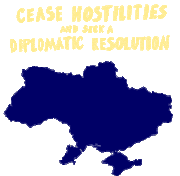|
FishBulbia posted:I feel like I'm taking crazy pills here but wasn't "Finlandization" originally a critique lodged at the Finns that they had essentially become all but Soviet proxies? They literally had a mutual defense pact if Finland was invaded and Soviet authorities managed to ban some books inside Finland. The term originated in German policy debates in the 60's, mainly to illustrate what too much collaboration with the Soviets could do, and how those poor Finns live under a semi-tyranny. That said, it's absurd to suggest that finlandization would be a desirable condition, it was a real-politik choice made to keep Stalin from invading us, but it definitely led to some extremely warped political phenomena especially in the 70's and 80's. It was beneficial for politicians to use "anti-soviet" as a cudgel against their opponents, many leading politicians had, shall we say shady contacts with the KGB and Stasi, and as someone said Finnish economical life was also warped in strange ways thanks to extensive trade with the Soviet sphere. The flip-side of all of this that I think is missed is that during many periods of Soviet policy, they had their own reasons for keeping a friendly Finland next door as the "showcase of co-operation between capitalism and socialism". Due to the authoritarian nature of the Soviet system, these reasons came and went with whoever was in charge of Soviet policy, but all the same our big neighbour back then had their own realpolitik reasons for not oppressing us too much. I don't think this would really be the case with modern Russia and Ukraine, Putin clearly wants to at the minimum install a puppet regime. (If some Finns want to debate whether UKK was a soviet puppet ruler, we can take it to Finnpol!) There doesn't seem to be much incentive, or political will for that matter, for Russia to maintain the sort of semi-cordial relations "finlandization" included from the Soviet side, so the entire proposal seems absurd on its face. If "the west" doesn't want to defend Ukraine against an actual threat of invasion, and at minimum an attempt to destabilize their regime, from Russia, then just say that instead of using out-dated historical terms, mister Macron!
|
|
|
|

|
| # ? May 31, 2024 16:46 |
|
Al-Saqr posted:Someone really ought to send a memo to the English and French informing them that they’re yesterdays news and are irrelevant lol Rappaport posted:The term originated in German policy debates in the 60's, mainly to illustrate what too much collaboration with the Soviets could do, and how those poor Finns live under a semi-tyranny.
|
|
|
|
A Buttery Pastry posted:The realpolitik reason makes sense. I wonder if part of the reason was to ensure Sweden stayed neutral, rather than giving it a reason to join NATO. Having less control over Finland definitely seems like a price worth paying to keep NATO out of the Baltic. Sweden was definitely a part of the soviet reasoning, they were absolutely furious that Norway and Denmark joined NATO.
|
|
|
|
Rappaport posted:Sweden was definitely a part of the soviet reasoning, they were absolutely furious that Norway and Denmark joined NATO. I believe there was a wordless agreement that Sweden was allowed to sway to the West while staying out of NATO, and Finland was left mostly as-is, but was forced to sign a Co-Operation, Friendship and Mutual Aid Pact with the USSR to serve as a living showcase of the many benefits of a with the benevolent Soviet Special Friendship Zone that only wished peace for all workers of the world. After the war Finnish politicians did their utmost to keep to the exact letter of that pact way and politely yet resolutely rebuffed any offers for increased (military) co-operation emanating from the USSR. Later, as things settled, trade with the USSR boomed and the money and cheap oil started rolling in. Finnish politicians across the political spectrum began making connections and playing the Soviet Trump Card to the hilt for personal gain, leading to the many curious political phenomena of the time. It's kinda hard to say how much of Finlandization was USSR influence (a lot!) and how much of it was just people being people and making hay of the situation as it was. </finnpol>
|
|
|
|
Sinteres posted:I'd suggest you're doing the same with the perfectionist fallacy, suggesting that if some food aid is misappropriated it would be better to let everyone starve. You're still not getting it. Even if we for example lifted sanctions against North Korea it wouldn't change a drat expect further enabling the DPRK while they still let their own people starve. To be blunt, sanctions are super complicated and not some kind of binary thing and there's always some kind of cost-benefit. It sucks that human lives are involved with that but who bears the blame for that? The Authoritarian leaders or countries sick of them screwing around?
|
|
|
|
orcane posted:idiots like Sinteres Yeah I think I'm going to choose not to engage with this. Crosby B. Alfred posted:You're still not getting it. Even if we for example lifted sanctions against North Korea it wouldn't change a drat expect further enabling the DPRK while they still let their own people starve. To be blunt, sanctions are super complicated and not some kind of binary thing and there's always some kind of cost-benefit. It sucks that human lives are involved with that but who bears the blame for that? Both?
|
|
|
|
barbecue at the folks posted:I believe there was a wordless agreement that Sweden was allowed to sway to the West while staying out of NATO, and Finland was left mostly as-is, but was forced to sign a Co-Operation, Friendship and Mutual Aid Pact with the USSR to serve as a living showcase of the many benefits of a with the benevolent Soviet Special Friendship Zone that only wished peace for all workers of the world. After the war Finnish politicians did their utmost to keep to the exact letter of that pact way and politely yet resolutely rebuffed any offers for increased (military) co-operation emanating from the USSR. Later, as things settled, trade with the USSR boomed and the money and cheap oil started rolling in. Finnish politicians across the political spectrum began making connections and playing the Soviet Trump Card to the hilt for personal gain, leading to the many curious political phenomena of the time. It's kinda hard to say how much of Finlandization was USSR influence (a lot!) and how much of it was just people being people and making hay of the situation as it was. </finnpol> Apparently there were many saunadiscussions where soviet generals tried to push for more cooperation and joint exercises with the Finnish military, but they were more or less politely declined by UKK, our long-time president. UKK also gave stern instructions to our generals etc. that in any discussions with the soviet military, they were to maintain to our neutrality policy and insist Finland could defend its own borders. This became a bit awkward over time as things like air defence became more challenging due to technological developments. I believe there was a sort of rift between Soviet military leadership, who wanted a more direct military union with Finland, and the Soviet political leadership, who were also interested in the showcase aspect of Finland remaining ostensibly neutral. I don't think this kind of division of ideas exist in modern Russia towards Ukraine, or at least that's what it looks like. Any kind of finlandization-model for Ukraine just doesn't seem feasible. I also vaguely remember Sweden actually making implicit threats to the USSR a couple of times about seeking NATO membership when Finland was in hot water over some kerfuffle or other, but I'm not a 100% sure. Obviously it was in Sweden's interest that the status quo of the time remained, a sovietized Finland would've been a disaster from their point of view.
|
|
|
|
Crosby B. Alfred posted:To be blunt, sanctions are super complicated and not some kind of binary thing and there's always some kind of cost-benefit. Sanctions are in fact pretty simple: - MIC sanctions work in their purpose. - Economic sanctions only work if your goal is to cause a state to fail completely, triggering a humanitarian crisis worse than whatever else is going on there in the first place. And since going all the way looks bad, instead only just enough squeeze is put in to immiserate the vulnerable while hoping the ~regime~ will collapse in a way that looks homegrown, prolonging suffering indefinitely.
|
|
|
|
Sinteres posted:Both? Why both? Do you believe the blame is equal? If so, why?
|
|
|
|
Crosby B. Alfred posted:Why both? Do you believe the blame is equal? If so, why? Well I've said numerous times that I don't think sanctions actually work for their (stated) intended purpose, so if there are negative consequences to civilians for a policy that either doesn't work or has cynical motivations, of course the sanctioning country bears responsibility for that. As for the proportion of the blame, obviously it depends on the circumstance and I can't create a hard and fast rule here, plus I don't think it's really a reasonable thing people can do, but since my country's by far the one that weaponizes sanctions (including third party sanctions, which is blatantly imperialistic, even if in some cases it's more humane than other types of sanctions) I'm naturally more concerned with the harm my country does. If we could actually coerce other countries to do good things for their people in ways that didn't inspire blowback, and if that were the true objective of our leaders, obviously I'd like that, but I have very limited faith in the ability to do so, and think the desire is sometimes there but essentially always mixed in with more cynical motives.
|
|
|
|
Crosby B. Alfred posted:Why both? Do you believe the blame is equal? If so, why? A country being authoritarian has 0 impact on it being sanctioned or not so seems like the country doing the sanctioning would bear responsibility.
|
|
|
|
Sinteres posted:Well I've said numerous times that I don't think sanctions actually work for their (stated) intended purpose, so if there are negative consequences to civilians for a policy that either doesn't work or has cynical motivations, of course the sanctioning country bears responsibility for that. As for the proportion of the blame, obviously it depends on the circumstance and I can't create a hard and fast rule here, plus I don't think it's really a reasonable thing people can do, but since my country's by far the one that weaponizes sanctions (including third party sanctions, which is blatantly imperialistic, even if in some cases it's more humane than other types of sanctions) I'm naturally more concerned with the harm my country does. If we could actually coerce other countries to do good things for their people in ways that didn't inspire blowback, and if that were the true objective of our leaders, obviously I'd like that, but I have very limited faith in the ability to do so, and think the desire is sometimes there but essentially always mixed in with more cynical motives. I mean, if you start a fight. There are going to be consequences. That's the inevitability. This isn't grade school where the teacher just wants to squash conflict with "It doesn't matter who started it! Now get along kids!". It sucks people get caught in the crossfire. Maybe lovely leaders shouldn't make lovely decisions.
|
|
|
|
Crosby B. Alfred posted:I mean, if you start a fight. There are going to be consequences. That's the inevitability. This isn't grade school where the teacher just wants to squash conflict with "It doesn't matter who started it! Now get along kids!". And again, if the policy doesn't actually work to coerce the bad government to make better decisions but does punish civilians, it's not an appropriate response, but just collective punishment. We know the US doesn't give a poo poo about things like territorial integrity or protecting civilian lives from aggressor countries, so what it boils down to is that civilians in adversary countries need to be punished for getting in the way of US strategic interests.
|
|
|
|
cinci zoo sniper posted:Crimea shouldn't be "forcibly rejoined" - Crimea is a part of Ukraine, and Russia should withdraw the occupation forces. The inscrutable sanctions will cease to apply on their own. Afterwards, Crimean region and the central government of Ukraine may have a dialogue on the potential status changes for Crimea, if any. I find it doubtful that Crimean self-determination would be respected by Ukraine. Crimeans had wanted to be part of Russia according to polling since several years before the 2014 referendum, but there was no movement toward allowing them. This is because Ukraine's constitution's is set up to prevent secession, as territorial changes have to be approved via a referendum of the whole country, not just the territory in question, which puts territorial sovereignty over self-determination in precedence. This is unfortunately a common practice of nation-states, which you can also see with Catalonia in Spain, who also had a disputed referendum in 2017 that unlike Crimea didn't lead to change of territory because there isn't a huge powerful state of Catalans on Spain's border.
|
|
|
|
Crosby B. Alfred posted:This isn't grade school where the teacher just wants to squash conflict with "It doesn't matter who started it! Now get along kids!". That's exactly how nations treat conflicts where they've got no horse in the race lol
|
|
|
Koos Group posted:I find it doubtful that Crimean self-determination would be respected by Ukraine. Crimeans had wanted to be part of Russia according to polling since several years before the 2014 referendum, but there was no movement toward allowing them. This is because Ukraine's constitution's is set up to prevent secession, as territorial changes have to be approved via a referendum of the whole country, not just the territory in question, which puts territorial sovereignty over self-determination in precedence. This is unfortunately a common practice of nation-states, which you can also see with Catalonia in Spain, who also had a disputed referendum in 2017 that unlike Crimea didn't lead to change of territory because there isn't a huge powerful state of Catalans on Spain's border. I agree with you that Crimea would’ve unlikely been able to significantly increase its autonomy, what is there to say about seceding, before the occupation. In a hypothetical scenario where Ukraine remains a sovereign nation and Russia ceases its occupation of Crimea “soon”, I wouldn’t be too surprised to see the central government concede some ground to them, to paper over a variety of cracks or signal virtue to potential partners in the west. That said, the aim of the message you quote was simply to push back against the tacit notion of Crimea currently being where it belongs, and to reiterate that Crimea’s status is an internal affair of Ukraine.
|
|
|
|
|
Regarde Aduck posted:Quite Bit late but I feel like post-brexit Brits shouldn't get to criticise eu integration.
|
|
|
Private Speech posted:Bit late but I feel like post-brexit Brits shouldn't get to criticise eu integration. Let’s not, this isn’t the thread for UKPol character assassinations or whatever this post is.
|
|
|
|
|
cinci zoo sniper posted:I agree with you that Crimea would’ve unlikely been able to significantly increase its autonomy, what is there to say about seceding, before the occupation. In a hypothetical scenario where Ukraine remains a sovereign nation and Russia ceases its occupation of Crimea “soon”, I wouldn’t be too surprised to see the central government concede some ground to them, to paper over a variety of cracks or signal virtue to potential partners in the west. I would say explicitly rather than tacitly that Crimea is where it belongs, or at least in the best of situations regarding its governance that it could according to the principle of self-determination. The line in international law that self-determination issues within a state's borders are domestic affairs serves to prop up imperialism, just as the idea that sovereignty is first priority does. That is not to say that Russia's intentions were noble, however. Unlike Crimea, the Donbas never polled in favor of joining Russia, and is not majority Russian, but last I heard Russia still intends to annex it. That retroactively makes it clear that Crimea was just an accidental bit of anti-imperialism in a conflict between two cynical powers.
|
|
|
Koos Group posted:I would say explicitly rather than tacitly that Crimea is where it belongs, or at least in the best of situations regarding its governance that it could according to the principle of self-determination. The line in international law that self-determination issues within a state's borders are domestic affairs serves to prop up imperialism, just as the idea that sovereignty is first priority does. I disagree that a military occupation, which has decimated the native communities of Crimea, Crimean Tatars, and has been deporting Ukraine sympathisers, “recolonising” the peninsula in a fashion not too dissimilar from ethnic and political cleansings USSR carried out in the Baltics, is “in the best of situations regarding its governance”. Or that “referendum” under 30 thousand rifles was that. On the topic of polling, I posted a summary of some of it earlier today, that you may have seen - it doesn’t support that line of argument conclusively either. Don’t get me started on more “mundane” things like Russian security services “repossessing” homes their officers or friends have an eye for. Edit: Or whether if this isn’t an act of imperialism in itself, seeing you invoke that.
|
|
|
|
|
A kind of sanctions that would quite possibly work but would never be actually considered by the West as uncouth would be kicking out all the kids of the oligarchs/political elites, and freezing all their multiple villas. (It is, after all, basically all stolen property). Edit: "accidental anti-imperaliasm": annexing a region against the interests of genocided native population because the kids of settler-colonists want you to.
|
|
|
|
Any annexation of Crimea at this point is very fruit of the poisonous tree, if we're applying legal principles. Russia has had nearly a decade to decimate the actual native population, disappear dissent, and colonize it. There's big issues with the modern international system of sovereignty but one thing it tries to prevent is states biting off chunks of their neighbors like this.
|
|
|
|
cinci zoo sniper posted:I disagree that a military occupation, which has decimated the native communities of Crimea, Crimean Tatars, and has been deporting Ukraine sympathisers, “recolonising” the peninsula in a fashion not too dissimilar from ethnic and political cleansings USSR carried out in the Baltics, is “in the best of situations regarding its governance”. Or that “referendum” under 30 thousand rifles was that. On the topic of polling, I posted a summary of some of it earlier today, that you may have seen - it doesn’t support that line of argument conclusively either. Indeed, the referendum didn't appear to be legitimate, which was why I didn't mention it, only the polling beforehand. As you say, Russia itself is also an imperial power and my intent is not to valorize its actions here. My only point is that Crimea is in a more self-determined state as a part of Russia than it was as a part of Ukraine, and this is relevant to whether Russian forces should withdraw in favor of Ukrainian forces moving in.
|
|
|
|
Uhh, it's only "self-determined" if you ignore Russia's lack of democracy. And you know, the renewed oppression of the indigenous population that got genocided and forcefully kicked out from their homes by a previous Moscow government.
|
|
|
|
Koos Group posted:My only point is that Crimea is in a more self-determined state as a part of Russia than it was as a part of Ukraine what measure are you using to make that kind of determination?
|
|
|
|
Morrow posted:Any annexation of Crimea at this point is very fruit of the poisonous tree, if we're applying legal principles. Russia has had nearly a decade to decimate the actual native population, disappear dissent, and colonize it. There's big issues with the modern international system of sovereignty but one thing it tries to prevent is states biting off chunks of their neighbors like this. As we saw in the second Karabakh war recently though, allowing counter-purges just because it's done by the internationally recognized governing authority isn't exactly clean either.
|
|
|
|
Rinkles posted:what measure are you using to make that kind of determination? Polling. A majority of Crimeans wanted to be part of Russia rather than Ukraine.
|
|
|
|
OddObserver posted:A kind of sanctions that would quite possibly work but would never be actually considered by the West as uncouth would be kicking out all the kids of the oligarchs/political elites, and freezing all their multiple villas. (It is, after all, basically all stolen property). So the risk with that kind of approach is that you isolate the elites in the regime which they now have no choice but to support. You want to squeeze them a bit and make it clear there's a cost on them to Putin's actions, you don't want to accidentally remove all leverage and drive them into Putin's arms.
|
|
|
|
I think that the contemporary principle of trying to keep Europe from fragmenting and balkanizing any further is not founded on "imperialism" but the exact opposite. Add what cinci zoo sniper said to the mix and, it just sets off some alarms between my ears. I would like some clarification on what was meant by calling upholding internationally agreed borders as serving to prop up imperialism because neighbours to Russia have had some interesting historical experiences on that front.
|
|
|
|
^^^^ It's a nice future precedent for Israel's future annexation of the West Bank. You just need a local majority in a region, right? Alchenar posted:So the risk with that kind of approach is that you isolate the elites in the regime which they now have no choice but to support. True. The hope is always that the threat of sanctions prevents the bad behavior, though. And I think the case is somewhat different in Russia since it doesn't really have independent elites. So it'd be more like Putin's buddies asking him to not mess with their kids' vacations. OddObserver fucked around with this message at 21:16 on Feb 8, 2022 |
|
|
|
barbecue at the folks posted:I think that the contemporary principle of trying to keep Europe from fragmenting and balkanizing any further is not founded on "imperialism" but the exact opposite. Add what cinci zoo sniper said to the mix and, it just sets off some alarms between my ears. I would like some clarification on what was meant by calling upholding internationally agreed borders as serving to prop up imperialism because neighbours to Russia have had some interesting historical experiences on that front. With pleasure. Imperialism is a policy or ideology of extending rule over peoples and other countries, for extending political and economic access, power and control. My earlier examples, Spain and Ukraine, are engaging in imperialism because they're extending their rule or sovereignty over a people that wishes to be independent of them, Catalonia and Crimea respectively, and reaping the economic and political rewards of doing so. As you mention, neighbors to Russia have also been imperial subjects to it during the 20th century. To address the part about internationally agreed borders: those are not in any way mutually exclusive with imperialism. This is why the conflict between self-determination and territorial integrity exists. In international law, if an imperial power maintains control of its subjects, that's generally considered an internal affair from the perspective of other states.
|
|
|
OddObserver posted:A kind of sanctions that would quite possibly work but would never be actually considered by the West as uncouth would be kicking out all the kids of the oligarchs/political elites, and freezing all their multiple villas. (It is, after all, basically all stolen property). Supposedly that’s one thing on the menu from Americans, to kick oligarch kids out of Western universities. Koos Group posted:Polling. A majority of Crimeans wanted to be part of Russia rather than Ukraine. That is far from settled. You may disagree with every single poll mentioned in the thread today, as well as with Putin’s own human rights counsel, that’s fine - but then I’d like to see what sort of evidence makes you state this as a fact. I’d like to think that I’m educated enough on the subject to not have missed overwhelming body of robust evidence of an absolute majority that supported joining Russia. Seconding OddObserver’s questions on “how are they more self-determined”, I also am curious to ask if you think that the undetermined polls showed people’s support for being an region of Russia equal to others, or to be utterly disregarded and exploited by the occupation government like they were.
|
|
|
|
|
Joining an empire that is very explicitly not interested in protecting minority rights, as an ethnically heterogeneous territory, is not escaping imperialism, and is not a great leap for self-determination, since it doesn't recognize the minorities affected adversely by doing so, it only selectively recognizes one ethnic group's voice. In the regions surrounding an aggressive, anti-democratic power, the unity of larger states capable of slef-defense may be the only thing protecting minority nationalities and their right to conduct themselves with some autonomy from the burden of "self determination" imposed by Russian thugs.
|
|
|
|
Isn't one of the problems here that Crimea had been part of Russia for like 200 years until some soviet administrative reshuffling saw it transferred from the Russian SSR to the Ukrainian SSR - something which was a complete non-issue for its residents until the Soviet Union suddenly disintegrated.
|
|
|
|
steinrokkan posted:In the regions surrounding an aggressive, anti-democratic power, the unity of larger states capable of slef-defense may be the only thing protecting minority nationalities and their right to conduct themselves with some autonomy from the burden of "self determination" imposed by Russian thugs. Pretty convenient that the ideal configuration to ensure minority rights are perfectly respected is to abide by Khrushchev's arbitrary decision to gift Crimea to Ukraine without regard to the preferences of the people living there.
|
|
|
Mr. Sunshine posted:Isn't one of the problems here that Crimea had been part of Russia for like 200 years until some soviet administrative reshuffling saw it transferred from the Russian SSR to the Ukrainian SSR - something which was a complete non-issue for its residents until the Soviet Union suddenly disintegrated. It’s not clearly defined problem for someone other than Russian revanchists. The transfer happened 70 years ago, shortly after Beriya deported Crimean Tatars en-masse, and immediately after Stalin’s death.
|
|
|
|
|
Mr. Sunshine posted:Isn't one of the problems here that Crimea had been part of Russia for like 200 years until some soviet administrative reshuffling saw it transferred from the Russian SSR to the Ukrainian SSR - something which was a complete non-issue for its residents until the Soviet Union suddenly disintegrated. I mean there's a bit of nuance in there, like it's status as an autonomous republic under Russia that transitioned into being an autonomous Republic under Ukraine, and a whole 'forcible transfer of an entire non-Russian ethnic group into central asia'. The bottom line is that when the USSR broke up Russia agreed that Crimea went with Ukraine. This issue could have been up for negotiation then, but the point wasn't pressed by Russia. You don't get to just use force to change that.
|
|
|
|
Bernie Sanders thinks I'm a genius: https://www.theguardian.com/commentisfree/2022/feb/08/we-must-do-everything-possible-avoid-enormously-destructive-war-ukraine Not posting quite the whole thing here, but a lot of this should sound familiar: We should be clear about who is most responsible for this looming crisis: Vladimir Putin. Having already seized parts of Ukraine in 2014, the Russian president now threatens to take over the entire country and destroy Ukrainian democracy. In my view, we must unequivocally support the sovereignty of Ukraine and make clear that the international community will impose severe consequences on Putin and his associates if he does not change course. With that said, I am extremely concerned when I hear the familiar drumbeats in Washington, the bellicose rhetoric that gets amplified before every war, demanding that we must “show strength”, “get tough” and not engage in “appeasement”. A simplistic refusal to recognize the complex roots of the tensions in the region undermines the ability of negotiators to reach a peaceful resolution. One of the precipitating factors of this crisis, at least from Russia’s perspective, is the prospect of an enhanced security relationship between Ukraine and the United States and western Europe, including what Russia sees as the threat of Ukraine joining the North Atlantic Treaty Alliance (Nato), a military alliance originally created in 1949 to confront the Soviet Union. It is good to know some history. When Ukraine became independent after the Soviet Union collapsed in 1991, Russian leaders made clear their concerns about the prospect of former Soviet states becoming part of Nato and positioning hostile military forces along Russia’s border. US leaders recognized these concerns as legitimate at the time. They are still legitimate concerns. Invasion by Russia is not an answer; neither is intransigence by Nato. It is also important to recognize that Finland, one of the most developed and democratic countries in the world, borders Russia and has chosen not to be a member of Nato. Putin may be a liar and a demagogue, but it is hypocritical for the United States to insist that we do not accept the principle of “spheres of influence”. For the last 200 years our country has operated under the Monroe Doctrine, embracing the premise that as the dominant power in the western hemisphere, the United States has the right to intervene against any country that might threaten our alleged interests. Under this doctrine we have undermined and overthrown at least a dozen governments. In 1962 we came to the brink of nuclear war with the Soviet Union in response to the placement of Soviet missiles in Cuba, 90 miles from our shore, which the Kennedy administration saw as an unacceptable threat to our national security. And the Monroe Doctrine is not ancient history. As recently as 2018, Donald Trump’s secretary of state, Rex Tillerson, called the Monroe Doctrine “as relevant today as it was the day it was written”. In 2019, Trump’s former national security adviser, John Bolton, declared “the Monroe Doctrine is alive and well”. To put it simply, even if Russia was not ruled by a corrupt authoritarian leader like Vladimir Putin, Russia, like the United States, would still have an interest in the security policies of its neighbors. Does anyone really believe that the United States would not have something to say if, for example, Mexico was to form a military alliance with a US adversary? Countries should be free to make their own foreign policy choices, but making those choices wisely requires a serious consideration of the costs and benefits. The fact is that the US and Ukraine entering into a deeper security relationship is likely to have some very serious costs – for both countries.
|
|
|
Sinteres posted:Pretty convenient that the ideal configuration to ensure minority rights are perfectly respected is to abide by Khrushchev's arbitrary decision to gift Crimea to Ukraine without regard to the preferences of the people living there. I wonder how you feel about 1997 treaty between Russia and Ukraine, where Russia explicitly affirmed that Crimea is Ukrainian.
|
|
|
|
|

|
| # ? May 31, 2024 16:46 |
|
Sinteres posted:Bernie Sanders thinks I'm a genius: I doubt the US would annex Chihuahua if Mexico got cozy with Russia.
|
|
|


























